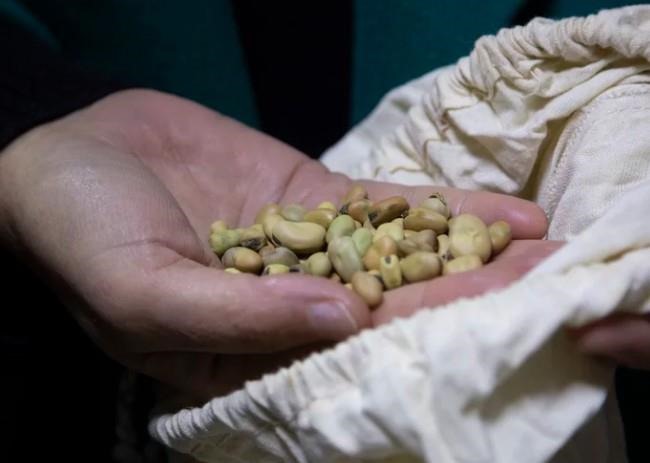By Liz Metzger

Mariana Yazbek, Genebank manager, shows fava beans that are packed inside bags in the large freezer room where the seeds are stored to dry at the ICARDA research station in the village of Terbol, in the Bekaa valley, east of Lebanon, Wednesday, December 21, 2022.
Inside a large freezer room at the International Center for Agricultural Research in the Dry Areas, tens of thousands of seeds are stored at a constant temperature of minus-4 degrees Fahrenheit.
The gene bank can hold as many as 120,000 varieties of plants. Many of the seeds come from crops as old as agriculture itself.
NPR's Middle East correspondent Ruth Sherlock has been looking into why some scientists are now turning to the seed bank for in search of agricultural breakthroughs. It turns out, some of them may hold keys to helping the planet's food supply adapt to climate change.
The research center, formed in the 1970s, once mostly helped farmers in poorer countries in hot, dry climates. But now it also sends seeds to scientists in Europe, Canada and the United States. Around the world, scientists are using the seeds to explore a variety of lines of research. Among them, answers to crop fragility.
Click here to see more...